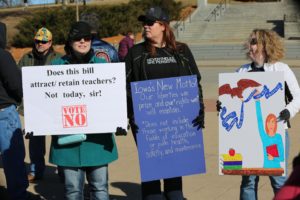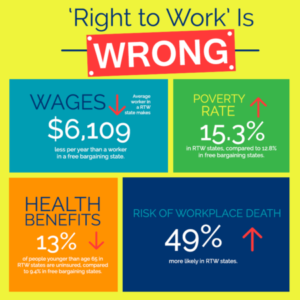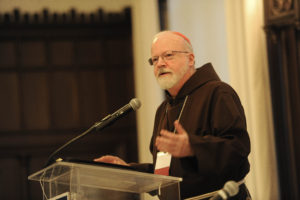Fr. Isaac Hecker, CSP (1819-1888) founded the Paulist Fathers, the first United States-based religious order. His sermon on “The Feast of St. Joseph” gives a summary of Hecker’s spiritual outlook:
Our age is not an age of martyrdom, nor an age of hermits, nor a monastic age. Although it has its martyrs, its recluses and its monastic communities, these are not and are not likely to be its prevailing type of Christian perfection. Our age lives in its busy marts, in counting-rooms, in workshops, in homes and in varied relations that form human society, and it is into these that sanctity is to be introduced.
Of course, every society has moral defects, some of which are quite serious. Hecker believed, however, that faith grows and spreads when the achievements of a society and a culture (in his case the United States) are first appreciated. Start with the positive, Hecker said.
A different outlook is making its way around the internet. Called The Benedict Option, it starts with the negatives of society and tries to construct a so-called pure Christian lifestyle. The movement’s name, reports The Wall St. Journal (2/19/17), is in homage to St. Benedict of Nursia (480-547), who founded a dozen small communities or monasteries in Italy. Some people identify with the movement while maintaining their normal job and while residing in a normal neighborhood. They take care, however, to avoid so-called secular influences. They spend time with others who share their worldview. Other people, as WSJ profiles, move into an alternative community and worship in a monastic setting.
This anti-cultural option is nothing new within Catholicism. Recluses, monastic communities and religious purists are always part of the mix; they come and go. The admirable Catholic Worker movement, for example, judges our dominant culture to be indifferent and violence-prone. People join the Catholic Worker to give symbolic protest and to serve the poor in personal, non-bureaucratic fashion. The Catholic Charismatic movement, to give a second contemporary example, is countercultural to one degree or another.
A few expressions of Christianity (Amish, for example) are designed to stand apart from the dominant culture. Catholicism, while it always benefits from sincere countercultural witness, is not designed to be sectarian. Catholicism is for sinners, not for a pure remnant.
The danger for those who espouse the Benedict Option is self-righteousness. Withdrawing from a so-called corrupt society is not in itself a more holy way than staying in society while advancing the common good. Home-schooling is not more holy than reforming a public school. A Mass celebrated in Latin is not more pleasing to God than one celebrated in Spanish or English. Serving dinner in a Catholic Worker house is no more a corporal work of mercy than a social worker spending a frustrating day arranging for a family’s food and shelter benefits.
In traditional Catholicism the virtue of social justice is finding like-minded people within one’s workplace or neighborhood and then in concert improving a policy or an institution. Social justice is hard because it is incremental. Always more to do tomorrow. It is also hard because it requires tradeoffs. Is half-a-loaf too little to settle for? Are the allies on this week’s effort too morally objectionable or is temporary collaboration OK? Will the side-effects of this week’s improvement cause greater harm within a few months?
Each Catholic needs monastic time and space–a few minutes each day, an hour or more once a week (in addition to Mass, which is world-affirming) and ideally a weekend retreat once a year. Catholicism cannot, however, endorse monasticism for the majority.
Do you want to entice children and young adults with the power of our faith? Try bringing solid Catholic tradition and our sacramental imagination into contact with the positives in their life and in our culture—jazz, the Constitution, baseball, public libraries, solar engineering, affordable housing development, direct relationships that avoid social media, efficient plumbing and garbage collection (the front line against disease), the jury system, sophisticated adoption agencies, a relatively vibrant voluntary sector, religious freedom (though in need of democratic vigilance), newspapers, well-maintained parks and expansive forests, clean water (though jeopardized in Michigan and elsewhere), colleges (though pay restraint for head football coaches is needed), resilient families (though pro-marriage public policies are needed), the hospice movement, group homes for mentally disabled (though more responsible management is needed in some of them), daily mail delivery, non-violent protest, lasagna and many more manifestations of God’s grace.
Droel is the author of Patty Crowley: Lay Pioneer (NCL, PO Box 291102, Chicago, IL 60629; $2.75 donation)



